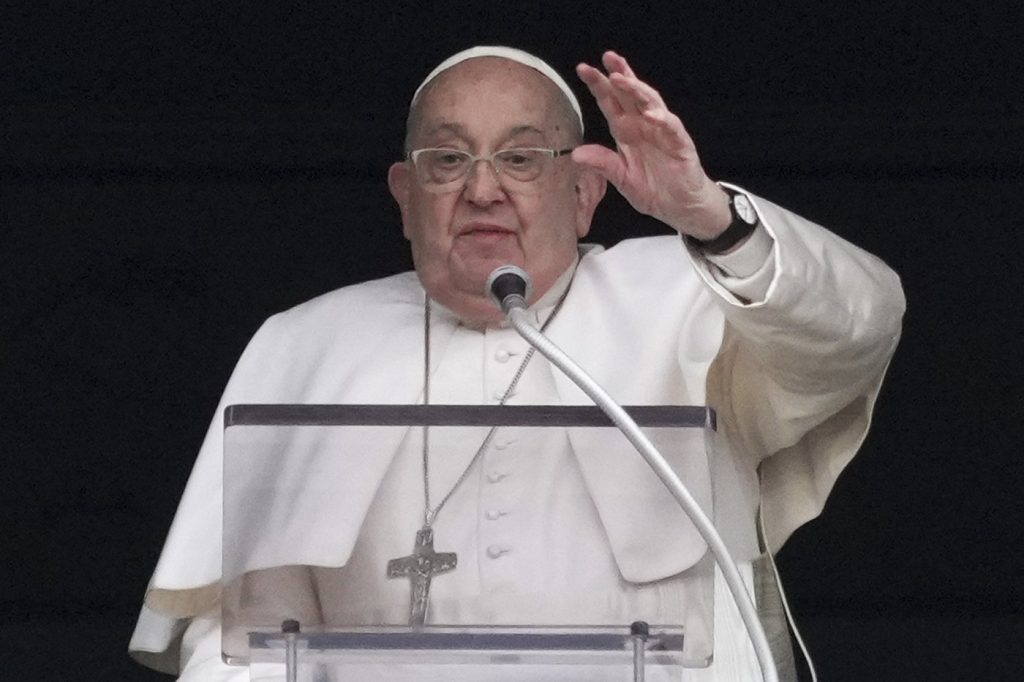VATICAN CITY (AP) – The life of Pope Francis, who passed away on Monday, is marked by a series of significant milestones and unprecedented actions within the Catholic Church. Born on December 17, 1936, in Buenos Aires, Argentina, Jorge Mario Bergoglio was the son of Italian immigrants and the eldest of five children. He was ordained as a Jesuit priest in 1969 and led the religious order in Argentina during the country's brutal military dictatorship from 1976 to 1983. Bergoglio became the archbishop of Buenos Aires in 1998 and was elevated to the rank of cardinal in 2001 by St. John Paul II. He made history on March 13, 2013, when he was elected as the 266th pope on the fifth ballot.
Pope Francis holds several historic distinctions. He was the first pope from the Americas, the first to belong to the Jesuit order, and the first to adopt the name Francis, inspired by St. Francis of Assisi. His papacy also saw him become the first pope to visit Iraq, meeting its senior Shiite Muslim cleric in 2021, further exemplifying his commitment to interfaith dialogue.
Throughout his tenure, Pope Francis exemplified humility and simplicity. While serving as the archbishop of Buenos Aires, he shunned the luxurious lifestyle of his predecessors, opting instead to ride public transport, prepare his own meals, and frequently visit impoverished communities. This lifestyle choice persisted during his time as pope, as he chose to reside in a modest Vatican hotel rather than the Apostolic Palace, wore simple orthotic shoes instead of the customary red loafers, and made a statement by using compact vehicles for official purposes.
One of the hallmarks of Pope Francis' papacy was his advocacy for migrants. His very first trip outside of Rome in 2013 took him to Lampedusa, a Sicilian island where he met newly arrived migrants. He vocally condemned the "globalization of indifference" that marginalized refugees and took direct action by praying for the deceased at the U.S.-Mexico border in 2016. Notably, he flew 12 Syrian Muslims back to Rome from a refugee camp in Lesbos. His strong stance on welcoming migrants often clashed with policies in the United States and Europe, notably when he criticized then-presidential candidate Donald Trump, asserting that constructing a wall to keep migrants out was un-Christian.
Pope Francis also demonstrated a more welcoming approach towards the LGBTQ+ community. He famously stated, "Who am I to judge?" when asked about a gay priest. In a 2023 interview, he declared that "being homosexual is not a crime" and subsequently approved blessings for same-sex couples, with certain conditions to ensure they did not mimic traditional marriage vows.
Environmental issues became a central focus during Pope Francis' papacy. In 2015, he released the encyclical "Laudato Si'," marking the first time a pope utilized scientific evidence in a major teaching document. The encyclical called for a cultural revolution to amend a "structurally perverse" global economy that exploits the poor and contributes to environmental degradation, urging society to take better care of the planet.
The scandal of clergy sexual abuse represented a significant challenge for Pope Francis. In 2018, he faced backlash for discrediting Chilean abuse victims while supporting a bishop accused of complicity. Recognizing his mistake, he later invited the victims to the Vatican to apologize and called for the resignation of the entire Chilean bishops' conference. In response to the crisis, he organized a summit in 2019, defrocked former Cardinal Theodore McCarrick following an investigation, and enacted church laws to abolish the use of pontifical secrecy and to improve procedures for investigating bishops involved in abuse cases.
Pope Francis also encountered criticism from within the Church. His tenure coincided with the presence of Pope Emeritus Benedict XVI, who resided in the Vatican and provided a point of contrast to Francis' reformative approaches. Some conservatives labeled him a heretic for permitting divorced and civilly remarried Catholics to receive Communion. Furthermore, Archbishop Carlo Maria Vigano, the Vatican's retired U.S. ambassador, accused Francis of having covered up McCarrick's misconduct and called for his resignation. This internal dissent reached a boiling point in 2024, when Vigano was excommunicated for schism.











